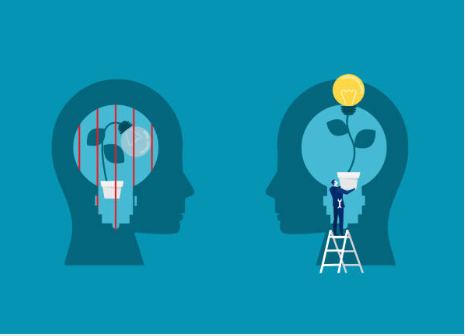Developing an Optimistic Mindset
Below are some tips to achieve an optimistic mindset: 1. Limit distractions. Eliminate distractions by setting goals and making steady progress.

Selfpause Affirmation App
Download the app to get 1,000’s of affirmation meditations and everything you need to write, record and listen to your own.
Optimism is a psychological phenomenon

Optimism is a psychological phenomena that can affect our behavior. When we are optimistic, we tend to believe that we will have less negative experiences in the future than we do today. This is a phenomenon known as optimistic bias, or comparative optimism. The factors leading to this phenomenon fall into four groups: underlying affect, cognitive mechanisms, and self-versus-target information.
Optimism influences the quality of life of people, which is associated with better overall health. Research has shown that people who are optimistic have healthier lifestyles and are more likely to engage in proactive health behavior. Optimism also promotes a healthier lifestyle and better cognitive responses. Furthermore, people who are optimistic tend to be more flexible and more effective at problem-solving.
Research has shown that the level of optimism is linked to improved workplace happiness and higher job performance. Optimism has also been linked to increased motivation, a higher grade average, and improved decision-making efficacy. However, there are also some negative aspects of optimism.
Optimism is a disposition to see the bright side in all situations. According to Scheier and Carver, dispositional optimism affects the way individuals deal with events. People who are optimistic tend to see the positive side of everyday events and view failure as a temporary setback. Research has also shown that optimistic subjects are more resilient to stress and use appropriate coping strategies to deal with difficult situations.
Research has shown that people who are optimistic tend to engage in more goal-oriented behavior and are more likely to achieve their goals. Optimists are more likely to believe that they can solve a problem than people who are pessimistic.
It affects your mental and physical well-being

Studies have shown that a positive mindset can improve your physical and mental well-being. People who are more optimistic have lower rates of stress, depression, and anxiety, and have better immune systems. Moreover, people with positive thinking have a longer life span and are more likely to avoid developing diseases such as diabetes and cardiovascular disease. Positive thinking can also improve your coping skills.
People who have a positive mindset are often cheerful and smile a lot. On the other hand, those who are constantly thinking negatively have a gloomy expression and feel overwhelmed by stress. They also tend to have more positive friends, and having a supportive group of positive people around you can help your mental health immensely.
In a recent study, scientists discovered that people with a positive mindset had lower rates of chronic disease. Furthermore, people with positive outlooks were also less likely to die of heart disease, stroke, and respiratory diseases. Researchers found that people with positive outlooks were 13 percent less likely to have a cardiovascular event than those with a pessimistic view.
People with a positive mindset are more likely to be happy, healthier, and more productive. These individuals tend to be more optimistic than people who have negative outlooks. They may even be more prone to make healthier decisions. The key to developing a positive mindset is to find ways to balance negative feelings and keep a positive perspective.
There are many ways to develop a positive mindset. The first step is to become aware of your own thoughts. If you are negative, you will not be able to change them overnight. However, you can train yourself to focus on the positive. You need to be aware of what causes your negative thinking, and not discount positive moments to make it seem less difficult.
It can lead to success

If you want to be successful, you need to adopt a positive mindset. There are many ways to do this. One easy way is to write down positive quotes from people you admire. You can also try to embody these quotes. You can post these quotes anywhere you feel it will be helpful to you.
Having a positive mindset does not mean that you won’t experience difficulty or disappointment. Those with a positive attitude often feel more likable and approachable, and people will notice this about them. Research has also proven that people with a positive mindset are more productive, engaged, and satisfied with their lives. Neuropsychologists have found that people with a positive attitude are more likely to solve problems and use their pre-frontal cortex, the part of the brain that is responsible for higher-level thinking.
Keeping a positive mindset is also important for entrepreneurs. When faced with challenges, it can be difficult to remain positive, but a positive mindset will help you overcome these problems and produce better results. In today’s world, it’s essential for entrepreneurs to stay positive. It will make any situation more manageable and productive, and it will help you focus on your goals.
Another good way to improve your positive attitude is to interact with positive people. Try joining a positive club or volunteering. Try to avoid negative people. Also, remember that people are not perfect. You will have times when you err, so be easy on yourself. This will make you more likely to improve your behavior the next time.
The research cited above shows that negative attitudes can have a negative impact on your life. These negative thoughts can erode relationships, contribute to bitterness, and even make you feel helpless.
It can make you feel better about yourself

Developing an optimistic mindset can help you feel better about yourself. It starts with identifying what makes you feel down and then working to change it. For example, you can try thinking of positive thoughts when you are stressed. You can even encourage others to be positive by giving them advice or motivation.
Optimists tend to see the good in every situation. They are creative thinkers and can recover from setbacks. They also allow themselves to dream big and channel their energy into positive thinking. They often write down gratitude journal entries to help them see the good things in their lives.
Being positive isn’t easy, especially when you don’t feel good. There are people out there who would rather think of the negative and find faults in everything. However, you can boost your optimism with a five-minute daily thought exercise. This will make you feel better about yourself and improve your quality of life.
Research has proven that a positive outlook can help you live longer. It can prevent depression and make you less sensitive to stress. Some experts believe that the ability to be positive can be learned. The best way to learn to be optimistic is by practicing it. A positive mindset also makes you more resilient to everyday stress.
An optimist sees every situation as an opportunity to learn and improve. The pessimist sees everything as a negative event, and is likely to give up. An optimist uses the power of positive thinking to stay positive in any situation. An optimist doesn’t take negative situations personally, and sees every failure as an opportunity to learn and improve.
It improves your mental fitness

Having an optimistic mindset is important in order to maintain a healthy body and mind. The benefits of having this mindset are many, including reduced symptoms of anxiety and depression. This means you can stay calm in a variety of situations and respond positively in the moment. As a result, you will experience greater resilience and energy. The positive mindset also promotes better memory.
An optimistic mindset allows you to see challenges as opportunities to learn something new or experience new things. For instance, an optimistic person might try to make their difficult boss happy by going to the gym or engrossing themselves in a hobby. By keeping a positive mindset, an optimist will often live longer and feel better about life.
It’s important to develop an optimistic mindset even if you don’t notice it. A positive outlook can improve your mental fitness, which can help you cope with the stress and anxiety of everyday life. The positive attitude can be cultivated through practice and imitation of positive people. However, if you don’t have a positive environment around you, cultivating an optimistic mindset may not help you overcome anxiety and depression.
An optimistic mindset improves your mental fitness by increasing your happiness and decreasing your anxiety. It also helps you develop stronger relationships and broaden your awareness. It can also help you avoid negative thinking, which wastes your energy and creates unnecessary stress. It’s important to be aware of how you think and make a conscious effort to be more positive.
Changing your thoughts can be a daunting process, but it’s not impossible. There are many methods to increase your positive mindset, and you can start by identifying areas of your life where you tend to be less optimistic. You can also try a practice called “Best Possible Self.” This practice involves taking five minutes every day to picture yourself in the future and focusing on the positive possibilities. You can also practice journaling in order to improve your outlook and reduce your feelings of negativity.
Our Top FAQ's
There are several strategies you can try to cultivate an optimistic mindset:
-
Practice gratitude by regularly taking time to reflect on the things you are grateful for in your life. This can help you focus on the positive aspects of your life rather than dwelling on negative thoughts or experiences.
-
Set achievable goals and celebrate your progress and accomplishments. This can help you build confidence and feel more positive about your abilities.
-
Surround yourself with positive, supportive people who encourage and motivate you.
-
Engage in activities that you find enjoyable and fulfilling, as this can help you feel more positive about yourself and your life.
-
Practice mindfulness and focus on the present moment, rather than dwelling on negative thoughts about the past or worrying about the future.
There are many benefits to having an optimistic mindset, including:
- Greater resilience and ability to cope with challenges and setbacks
- Improved physical and mental health
- Increased life satisfaction and well-being
- Better performance at work or school
- Stronger relationships with others
One technique you can use to challenge negative thoughts is called cognitive reframing. This involves identifying negative thoughts or beliefs, evaluating their accuracy, and replacing them with more balanced or positive thoughts. Here are some steps to try:
- Notice when you are having negative thoughts, and try to identify the specific thought or belief.
- Consider whether the thought is based in fact or whether it is a belief or assumption.
- If the thought is not based in fact, try to come up with alternative, more balanced or positive thoughts that better reflect reality.
- Practice repeating the new, more positive thought to yourself whenever the negative thought arises.
There are several ways you can incorporate gratitude into your daily routine:
- Keep a gratitude journal and write down a few things you are grateful for each day.
- Share your gratitude with others, either by telling them in person or writing a thank-you note.
- Practice mindfulness and focus on the positive aspects of your experiences and surroundings.
- Participate in activities that promote gratitude, such as volunteering or helping others.
Here are some strategies for maintaining an optimistic mindset in the face of challenges or setbacks:
- Practice resilience by reminding yourself that setbacks and challenges are a normal part of life and that you have the ability to bounce back and learn from them.
- Focus on what you can control and let go of things that are out of your control.
- Seek support from others, whether it’s through friends, family, or a support group.
- Practice self-care and engage in activities that help you relax and recharge, such as exercise, meditation, or hobbies.
- Stay positive by reminding yourself of your strengths and accomplishments, and try to find the silver lining in difficult situations.
